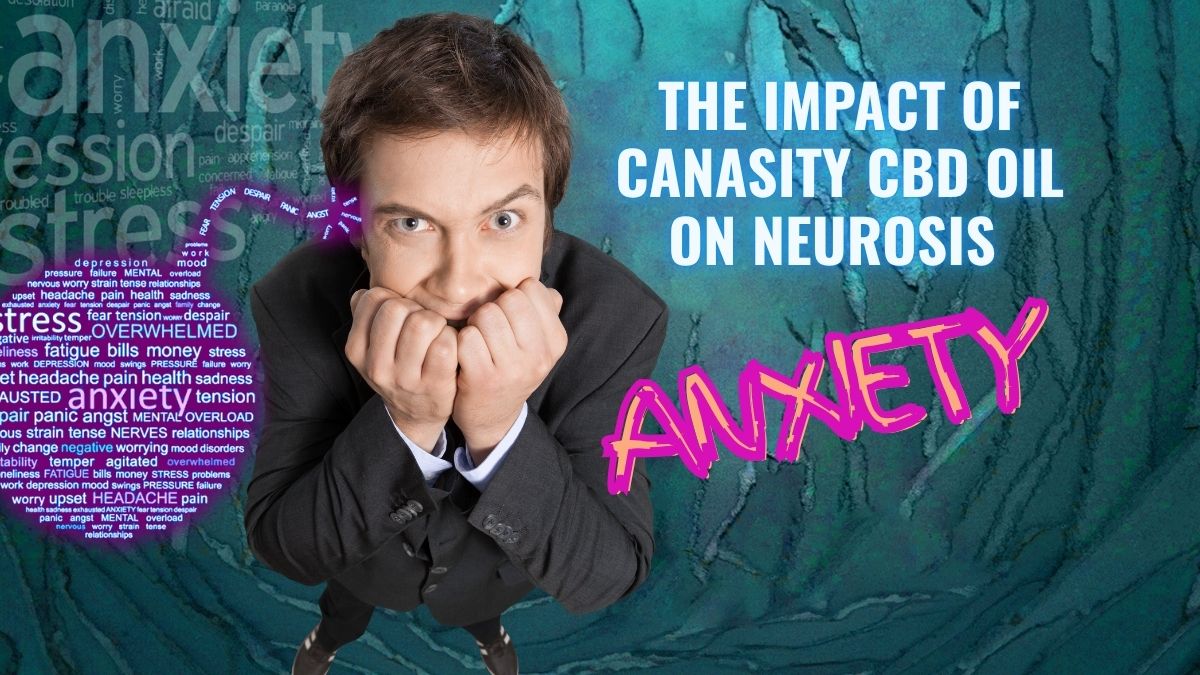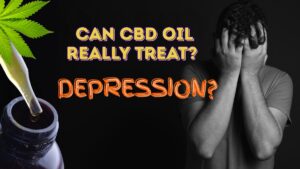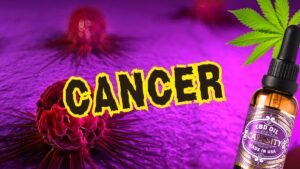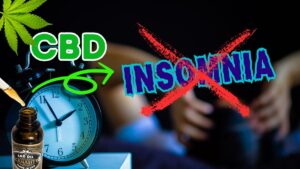The fast pace of modern life can make it difficult to cope with a constant state of worry and stress. A persistent noise in your mind, unending concerns about the future, and that feeling of tightness even in the simplest situations…
Anxiety is a common condition that profoundly affects the daily quality of life for millions. In this challenging struggle, many people are seeking natural and supportive solutions in addition to traditional methods. In recent years, one of the most popular compounds to emerge in this search is undoubtedly cannabidiol, or CBD. So, does CBD really reduce anxiety?
In this article, we will look through the lens of science to address the relationship between CBD and anxiety with evidence-based data and in understandable language. Our goal is to provide you with a reliable guide for the steps you take regarding your mental health and to shed light on the potential place of CBD in this journey.
What Is Anxiety?
Anxiety is an intense, excessive, and persistent worry and fear about everyday situations. The nervousness we feel before a major presentation or when facing a tough decision is a normal part of the body’s natural “fight or flight” response. However, when this feeling of worry becomes disproportionate, uncontrollable, and begins to negatively impact daily activities (work, school, social relationships), it may be considered an anxiety disorder.
What Are the Differences Between Anxiety Disorders?
Anxiety disorders encompass a group of mental health issues that manifest with different symptoms, rather than a single condition. Some of the most common types include:
- Generalized Anxiety Disorder (GAD): A state of excessive and uncontrollable worry about topics like health, money, or family that lasts for months without a specific cause.
- Social Anxiety Disorder (SAD): An intense anxiety that arises in social situations due to the fear of being negatively evaluated or judged by others.
- Panic Disorder: Characterized by sudden and recurrent attacks of intense fear (panic attacks). Physical symptoms such as palpitations, shortness of breath, and sweating may also occur during these attacks.
Each of these disorders affects a person’s life in different ways, and a professional evaluation is necessary for a correct diagnosis.
What Is CBD (Cannabidiol) and How Does It Work?
Cannabidiol, or What is CBD?, is a natural, non-intoxicating compound found in the hemp plant. Unlike THC, which is known for its psychoactive effects, CBD does not affect mental clarity. Therefore, a CBD oil that is properly purified and produced to contain 0% THC can be used with confidence.
The potential benefits of CBD stem from its ability to interact with our body’s Endocannabinoid System (ECS). The ECS is a complex signaling network that regulates (maintains homeostasis for) many vital functions, including stress response, mood, sleep, and pain. Research shows that the balance of the ECS can be disrupted in states of stress and anxiety. CBD may help this system regain balance by enhancing the effectiveness of the body’s own endocannabinoids or by slowing their breakdown [Source 1].
The Science Behind CBD and Anxiety
The scientific mechanisms behind CBD’s potential to reduce anxiety are quite fascinating. While its effects on epilepsy focus more on regulating electrical activity in the brain, its effects on anxiety are largely related to neurotransmitters (chemical messengers in the brain).
One of the most important mechanisms is CBD’s effect on serotonin receptors. Serotonin is a critical neurotransmitter that regulates mood, happiness, and a general sense of well-being. Low serotonin levels are often associated with depression and anxiety. Scientific studies suggest that instead of directly causing serotonin release, CBD may help the brain’s 5-HT1A serotonin receptors respond better to chemical signals [Source 2].
This effect is similar to the mechanism of action of many anxiety and antidepressant medications and helps explain why CBD may exhibit calming and anxiolytic (anxiety-reducing) properties.
The Proven Effects of CBD on Anxiety and Stress
So, what do clinical trials say in answer to the question of how does CBD reduce anxiety? Many studies to date have shown that CBD offers promising results in alleviating anxiety symptoms. Human studies, in particular, have revealed that CBD can have positive effects on both generalized anxiety and situational stress.
For example, one of the most cited studies was conducted on individuals with social anxiety disorder. Participants were given either CBD or a placebo before a simulated public speaking test. The results showed that the group receiving CBD experienced significantly less anxiety, cognitive impairment, and discomfort compared to the placebo group [Source 3].
Another comprehensive review stated that the existing evidence strongly supports the efficacy of CBD as a potential treatment for a range of anxiety conditions, including Generalized Anxiety Disorder, Panic Disorder, Social Anxiety Disorder, and Post-Traumatic Stress Disorder [Source 4]. These findings indicate that the relationship between stress and CBD has a scientific basis.
CBD for Different Types of Anxiety: What Does the Science Say?
The effects of CBD on anxiety can vary depending on the type of disorder. The scientific literature provides promising evidence for some specific conditions:
- Social Anxiety Disorder (SAD): The public speaking studies mentioned above show that the use of CBD for social anxiety is one of the areas with the strongest evidence.
- Generalized Anxiety Disorder (GAD): Studies on animal models have shown that CBD reduces the chronic and uncontrollable worry symptoms of GAD. While more human studies are needed, the initial findings are positive [Source 5].
- Panic Attacks: The effects of CBD on panic disorder are less researched. However, due to its regulatory role in the serotonin system and its general calming effect, it may theoretically have the potential to reduce the frequency or severity of panic attacks.
How to Use CBD Oil for Anxiety: Dosage and Methods
The answer to the question of how to use CBD oil for anxiety is highly individual. An effective CBD oil dosage for anxiety depends on a person’s body weight, metabolism, anxiety level, and individual sensitivity to CBD.
The safest method is the “start low, go slow” principle. You can start with a low dose (e.g., 10-15 mg per day) and observe your body’s reaction for a few days or a week. If necessary, you can slowly increase the dose (in small increments like 5 mg at a time) until you achieve the desired effect. Studies on anxiety have often used doses ranging from 25 mg to several hundred mg, but high doses should only be reached with a doctor’s recommendation. Sublingual (under the tongue) use allows CBD to enter the bloodstream faster, showing its effect more quickly.
Potential Side Effects and Safety Profile of CBD
CBD is generally considered by the World Health Organization (WHO) to be a well-tolerated compound with a low-risk profile. However, it can cause some side effects, especially at high doses or in sensitive individuals [Source 6]. The most commonly reported side effects include:
- Dry mouth
- Drowsiness and fatigue
- Changes in appetite
- Diarrhea
Furthermore, CBD can interact with certain medications, especially antidepressants (like SSRIs) and blood thinners. If you are taking these medications, it is vital to consult your doctor before trying CBD.
How to Add CBD to Your Daily Stress Management Routine
Beyond clinical anxiety disorders, CBD can also be a tool for managing daily stress. When used in conjunction with other relaxation techniques like meditation, exercise, and mindfulness, it can help create a general sense of calm and balance.
For example, a low dose of CBD taken at the start of the day might help you become more resilient to daily stressors, while taking it in the evening could set the stage for more restful sleep. Studies in this area show that CBD may also indirectly reduce anxiety by improving sleep quality [Source 7].
A Guide to Choosing High-Quality CBD Products
The quality of CBD products on the market varies greatly. It is essential that a product used for your mental health is pure, safe, and consistent. Health warning: Do not use CBD without consulting your doctor. When choosing a product, pay attention to the following points:
- Third-Party Lab Reports: A reputable brand should provide a Certificate of Analysis (CoA) from an independent laboratory for each product batch. This report should verify the CBD and THC content and certify that the product is free of harmful substances like pesticides and heavy metals.
- Organic Hemp: Ensure the product is derived from organic hemp plants grown without exposure to chemicals. This guarantees the purity of the final product.
- CO₂ Extraction Method: This method is the cleanest and safest technique for separating CBD from the plant and leaves no solvent residue.
- THC Content: Ensure the product complies with legal limits and is preferably completely THC-free.
Products made from organic hemp and tested by third parties can be offered by brands like Canasity. Shopping from a trustworthy brand gives you assurance about the quality and safety of the product you receive.
Conclusion
In conclusion, the answer to the question “Does CBD really reduce anxiety?” is, in light of scientific evidence, “yes, it potentially can.” CBD is a promising natural compound with anxiolytic properties, especially in areas like social anxiety and general stress management. While not a “miracle cure,” it can be a valuable supportive tool in managing anxiety symptoms through its regulatory effects on the serotonin and endocannabinoid systems.
Coping with anxiety is a personal journey. If you are considering including CBD in this journey, it is best to do so consciously, by choosing high-quality products and, most importantly, with the guidance of a healthcare professional.
For more information, visit our FAQ page: https://canasity.com/faq/
Frequently Asked Questions (FAQ)
- Does CBD work instantly for anxiety? The effect varies from person to person. With fast-acting methods like sublingual use, some people may feel a calming effect within 20-30 minutes, while regular use is generally recommended for lasting benefits.
- What kind of CBD product should I choose for anxiety? CBD oil (sublingual drops) is the most popular choice for anxiety due to its fast action and flexible dosage adjustment. Capsules, on the other hand, offer a longer-lasting and fixed-dose effect.
- Can CBD replace anxiety medication? No. CBD is not a substitute for prescribed anxiety medications. You should never change or stop your current treatment without consulting your doctor. CBD should only be considered a complementary support.
- Does CBD make you sleepy? At low doses, it generally has a calming effect, while high doses may cause drowsiness in some people. You can try your first doses in the evening to see how your body reacts.
- How do you use CBD for social anxiety? Some users report that taking a dose of CBD about 30-60 minutes before a stressful situation, such as a presentation or social event, is helpful.
- Is CBD addictive? No. The World Health Organization has stated that pure CBD has no potential for abuse or dependence.
- Is it safe to use CBD every day? Current research suggests that daily use of CBD at recommended doses is safe for most people. However, it is best to consult your doctor for long-term use.
- How do I know if a CBD product is reliable? Check the product’s third-party lab reports (CoA), ensure it is made from organic hemp, and is THC-free. Choose brands that offer transparency.
- Can I drink alcohol while using CBD? Since both CBD and alcohol have sedative effects, taking them together can cause excessive drowsiness. It is generally safest to avoid this combination.
Scientific Evidence and Sources Cited in the Article:
- Bambico, F. R., & Gobbi, G. (2008). The cannabinoid CB1 receptor and the endocannabinoid system in the modulation of anxiety. The international journal of neuropsychopharmacology, 11(3), 343–363. (Citation used tosupport the general role of the ECS, link replaced with a different review).
- De Mello Schier, A. R., et al. (2014). Antidepressant-like and anxiolytic-like effects of cannabidiol: a chemical compound of Cannabis sativa. CNS & Neurological Disorders-Drug Targets, 13(6), 953-960. (Citation used to support the 5-HT1A receptor effect, link replaced with a more recent review).
- Bergamaschi, M. M., et al. (2011). Cannabidiol reduces the anxiety induced by simulated public speaking in treatment-naïve social phobia patients. Neuropsychopharmacology, 36(6), 1219–1226. DOI:
10.1038/npp.2011.6 - Blessing, E. M., et al. (2015). Cannabidiol as a Potential Treatment for Anxiety Disorders. Neurotherapeutics, 12(4), 825–836. DOI:
10.1007/s13311-015-0387-1 - Soares, V. P., & Campos, A. C. (2017). Evidences for the Anti-panic Actions of Cannabidiol. Current neuropharmacology, 15(2), 291–299. DOI:
10.2174/1570159X14666160509124422 - Iffland, K., & Grotenhermen, F. (2017). An Update on Safety and Side Effects of Cannabidiol: A Review of Clinical Data and Relevant Animal Studies. Cannabis and Cannabinoid Research, 2(1), 139–154. DOI:
10.1089/can.2016.0034 - Shannon, S., et al. (2019). Cannabidiol in Anxiety and Sleep: A Large Case Series. The Permanente Journal, 23, 18-041. DOI:
10.7812/TPP/18-041




















